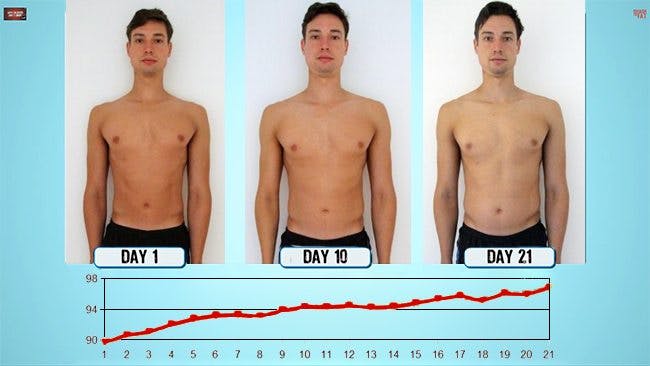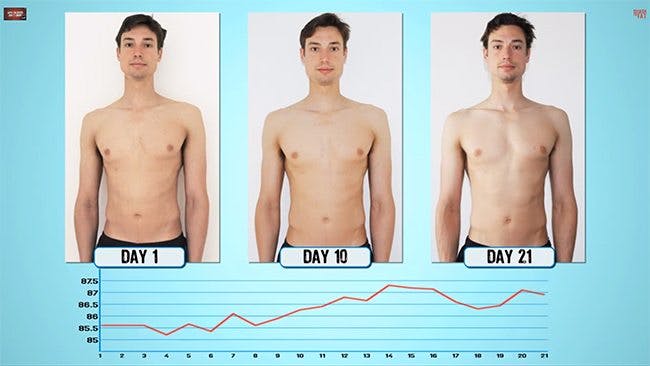Is overeating carbs worse than overeating on an LCHF diet?

The result of 5,800 calories of junk food a day
Sam Feltham carried out an experiment a few months ago that caught a lot of attention. For three weeks he pigged out on low-carb low-carb foods, 5,800 calories a day.
According to simplistic calorie counting, Feltham should have gained 16 lbs (7.3 kg). But in reality, he only gained less than 3 lbs (1.3 kg).
Now Feltham has repeated his experiment with exactly the same amount of calories, but from carbohydrate-rich junk food. On the same amount of calories he gained more than five times as much weight: almost 16 lbs (7.1 kg)!
The difference in waist circumference was even more significant: 5,800 calories of LCHF food for three weeks reduced his waist measurement by 1 1/4 inches (3 cm). The same amount of junk food led to a 3 1/2 inch (9.25 cm) increase in his waist. And you can see the difference visually.
A picture is worth a thousand words
Above are photos from the junk food experiment. Below, the LCHF experiment (with the same amount of calories) as a comparison:
Conclusion
A calorie is not a calorie. This has already been proven in study after study, but Feltham provides us with a nice real world illustration.
Here’s his final report: Day 21 Of The 21 Day 5,000 Calorie CARB Challenge
What do you think about the outcome?
Previous
What Happens if You Eat 5,800 Calories Daily on an LCHF Diet?
More
Doctor: “No Fat People in Auschwitz”
Why Calorie Counters are Confused
